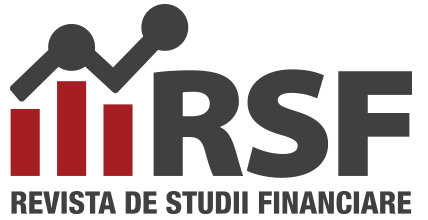Author: Valentin Ionescu
Vol. 6 • No. 10 • May 2021
Education versus experience
People generally believe that there is no substitute for experience and that practice is the one that makes the education. On the other hand, the theoretical education must be used in practice, therefore there is this great debate between education and continuous experience. Most financial companies prefer experience over education or theoretical training. At the same time, there are areas that place education above experience.
Let us pay attention to education first. This can be defined as the process in which intellectual and moral training is provided to participants. Education is extremely important because it allows the individual to expand their horizons. It is true that experience has its value too, but we cannot deny that the education prepares us for difficult situations in our professional careers. When we have a broad knowledge base, we are confident in overcoming the daily difficulties of our activity much more easily than a person who had no education and relied strictly on his experience.
On the other hand, experience refers to the practical involvement in an activity, event and so on or to the knowledge and skills acquired over time. Experience gives us a special advantage over others when we engage in different tasks, it gives us practical knowledge that cannot be acquired through education. An eloquent example is when we do not understand the value of money and continue to spend pocket money without feeling it because we did not work for them until the time comes to earn it and spend it on really important things. One can teach you all about investing in the stock market, but until you actually invest yourself, you cannot feel this experience to be real.
Education contributes significantly to economic growth and well-being through various channels and in many ways. However, in many developed countries, education, research and knowledge dissemination have supported and facilitated the development of financial markets. Education can further contribute to the full realization of the benefits of financial innovation that supports the growth performance of our economies by using this channel.
Human capital is a broad concept that is determined by education – the quantity and quality of school – as well as on-the-job training and learning and cognitive skills.
Studies have shown that there is a stronger correlation between good school performance and economic growth, but the correlation does not necessarily imply causality. Ultimately, improvements in education and faster growth can be influenced by other country factors, such as institutional infrastructure, social capital or culture. The correlation between schooling and growth can also be determined by the „reverse causality” from growth to education, as individuals invest more in education when the performance and growth prospects of the economy exist. However, education is only one component of the broader concept of human capital, which also involves on-the-job training and learning, as well as cognitive skills.
As a conclusion, it can be said that both education and experience are necessary for a successful career in the financial markets, although formal education provides a starting point that is necessary to succeed in future endeavors.
The ideal mix of education and experience can vary from field to field. Additional education, such as participating in a relevant online certification program, can also help. More education is also aligned with lower unemployment rates. Therefore, a high level of education will lead to a reduction in unemployment. Globalization and international trade require from the countries and their economies to compete with each other. Education and training in a country is a major factor in determining the performance of the country’s economy. Education is an investment in human capital, similar to a long-term investment.
The Institute of Financial Studies, through its activities, provides both professional training and financial education and research, all of these blending harmoniously.
